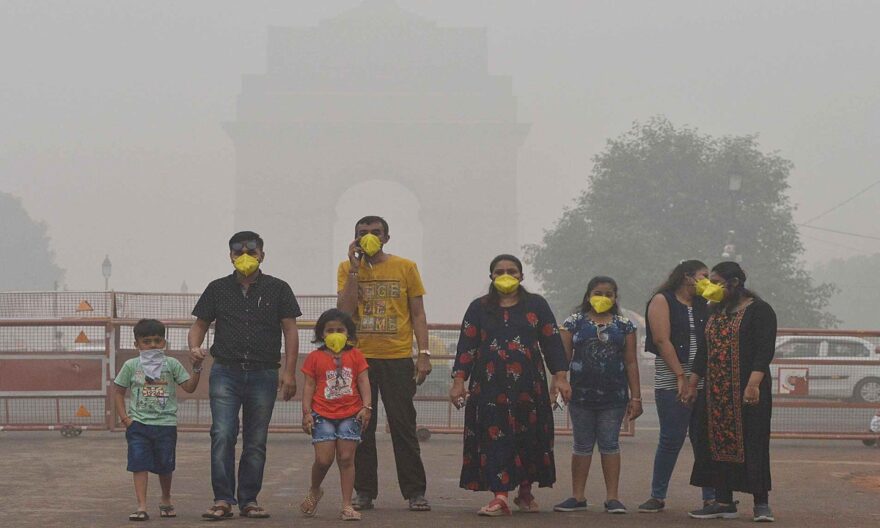
The National Green Tribunal (NGT) has emphasized the need to examine the “psychological aspect” of the deteriorating air quality in the national capital and has requested responses from government authorities, including the Union Ministry of Environment, Forest and Climate Change, and the director of AIIMS.
On Thursday, the smoky haze in the national capital intensified as the Air Quality Index (AQI) in several areas exceeded the 400-mark, entering the severe category.
A bench chaired by NGT Chairperson Justice Prakash Shrivastava stated, “Adequate measures are required for control of air polluting components and their adverse effect on various organs of the human body, especially those which are affecting the brain and emotional, psychological aspect.”
The bench, which also includes judicial member Justice Sudhir Agarwal and expert member A Senthil Vel, pointed out that on October 20, the tribunal had taken up the broader issue of air pollution in Delhi after acknowledging a media report.
However, the bench expressed the need to separately examine the “specific issue” regarding the impact on various body parts, including the brain. It highlighted the requirement to investigate the overall issue of various chemical and physical components causing air pollution and their adverse effects on different organs of the human body. The NGT issued notices to the secretary of the Union Ministry of Environment, Forest and Climate Change, Member Secretary of the Central Pollution Control Board (CPCB), Director General of the Indian Council of Medical Research (ICMR), Director of All India Institute of Medical Sciences (AIIMS), and the Secretary of Delhi government’s Health Ministry.
The tribunal specified that the responses should be filed by the mentioned respondents on or before the next date of hearing, which is scheduled for December 11. The NGT was addressing a matter in which it had taken notice of another newspaper report indicating that prolonged exposure to air pollution could increase the risk of depression, anxiety, and respiratory disorders.




